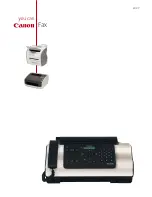
42
Troubleshooting
FAULT CAUSE
CORRECTIVE
ACTION
The motor-sweeper fails to pick up large particles
of dirt or leaves traces of dirt behind
Brush pressure too light
Brush worn
Bristles bent, or string or wire, etc., entangled in
brush
Adjust brush pressure (trace on floor)
Lower or replace brush
Remove string or wire and straighten bristles in
warm water
Sweeper leaves dust on floor or dust comes out
from side flaps
Filter clogged
Side flaps worn out or broken
Clean filter
Replace side flaps
Dust comes out of the suction fan
Filter torn
Replace filter
Motor-sweeper throws dirt forwards
Front flap broken
Replace front flap
The main brush lifts the front flap
Front flap too long
Replace front flap
Rapid brush wear
Excessive brush pressure
Reduce brush pressure (narrower trace)
Main brush noise different or excessive
Material wound around brush
Remove entangled material
The main brush does not turn
Drive belt broken
Fit new drive belt
Battery does not maintain its charge
Electrolyte level low
Battery cell burned out
Motor over-loaded
Battery terminals loose
Material entangled in main brush
Bearings seized
Excessive brush pressure
Top up electrolyte level
Replace battery
Check motor current absorption
Check and tighten battery terminals
Remove entangled material
Replace bearings
Reduce brush pressure (narrower trace)
Battery discharges quickly
Insufficient charge time
Battery terminals loose or oxidized
Increase charge time
Tighten terminals
Electric shaker does not work
Switch broken
Fuse blown
Excessive motor power absorption caused by:
worn pads
dirty or worn bearings
Replace
Replace
Replace
Replace
Shaker fuse blows
Excessive motor power absorption
Faulty fuse
Wire short-circuit
See above
Replace
Check electrical system
Safety information
1) Cleaning:
When cleaning and washing the machine, take care when using aggressive detergents, acids, etc.
Follow the instructions provided by the detergent producer, and wear protective clothing if appropriate (e.g. overalls,
gloves, goggles, etc.).
2) Explosive atmosphere:
The machine is not constructed to work in environments where there is a risk that there might be explosive gases, dusts or
vapours, and so its use in an explosive atmosphere is FORBIDDEN.
3) Disposal of harmful substances:
Comply with the laws in force on waste disposal and treatment when disposing of the material collected, the machine
filters and spend material such as batteries, motor oil, etc.
4) Scrapping the machine:
If the machine is scrapped, subdivide the types of materials of which it consists (EEC Directives) according to the disposal
method, so that they can be disposed of in accordance with the laws in force.
Consign hazardous materials such as batteries, spent oils, etc to operators authorized to dispose of these substances.
Содержание 37.00.20
Страница 2: ...RCM ...




































